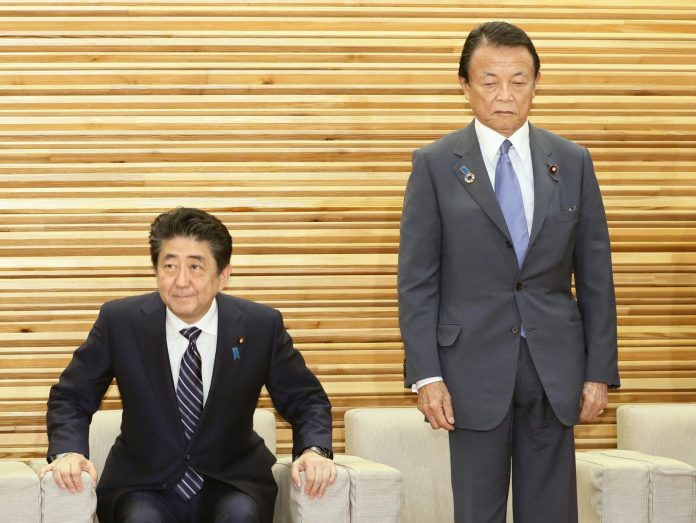TOKYO
The cabinet of Prime Minister Shinzo Abe has approved labor reforms designed to solve Japan’s demographic challenges while creating conditions that will promote job growth, particularly for those struggling to find stable work in the post-bubble economy.
Under the annual economic policy blueprint, the government wants to see 300,000 new jobs created over the next three years for people in their mid-30s to mid-40s who have had difficulties finding stable employment in the years since the end of Japan’s economic boom in the early 1990s.
The government hopes to help around 1 million people who graduated from high school and university between 1993 and 2004, collectively called the “employment ice age generation.”
The government is concerned the social security system, including the public pension system, will falter if the ice age generation is unable to find full-time work and generate sufficient tax revenue, officials said.
It hopes the policies will help them find work to offset the country’s serious labor shortage, according to the officials. Japan introduced a new visa system in April to bring in more foreign workers, a policy incorporated in last year’s blueprint.
But many of those affected complain the government wants to deploy them into labor-hungry sectors that have poor working conditions.
Critics say the planned reforms will not succeed unless Japanese companies shake up their employment practices, including the hiring of new graduates en masse, promotion by seniority and lifetime employment.
Under the policy blueprint, which will be reflected in drafting the state budget for fiscal 2020, the government also seeks to encourage the elderly to work longer.
It specifically plans to scale back and eventually abolish a system that reduces the pension of people who still earn at a certain income level.
The government believes the system discourages those of advancing age from continuing to work full-time.
“It is necessary to set the stage for the elderly who are willing to work so they can fully exercise their abilities,” the policy guideline said.
In a strategy separately approved Friday by the cabinet, the government decided it will ask companies to consider keeping employees in work until age 70, with many firms having already raised the retirement age from 60.
To secure funds to cover swelling social security costs, the policy blueprint also confirms the government’s planned October consumption tax rate hike from 8 percent to 10 percent.
With widespread fear that the tax hike could hurt the economy by weakening domestic demand, the government is looking to increase the national average minimum hourly wage to 1,000 yen ($9.30) from the current 874 yen “at an early date,” according to the blueprint.
Aso escapes Diet recriminations
Meanwhile, opposition party-submitted resolutions rebuking Finance Minister Taro Aso for his refusal to receive a report questioning the ability of the country’s pension system to meet retirees’ needs were voted down in the Diet on Friday.
The House of Representatives rejected a no-confidence motion against Aso, who opposition parties argue made an “unprecedented” and “outrageous” move to reject a report on the basis that it does not give a true representation of the situation.
Aso, who doubles as minister for financial services and deputy prime minister, refused last week to receive the report, saying the panel’s estimate contradicted the government’s position that the pension system is able to meet “to some extent” people’s household financial requirements in retirement.
Opposition parties ratcheted up pressure on Aso by submitting a censure motion in the House of Councillors, but it was also voted down earlier in the day. The ruling coalition of the Liberal Democratic Party and Komeito control both chambers.
The main opposition Constitutional Democratic Party of Japan, the Democratic Party for the People and the Japanese Communist Party were among the parties that submitted the resolutions.
The pension issue came to the fore ahead of an upper house election this summer. A Financial Services Agency panel estimated in the report that an average retired couple would face a public pension shortfall of 20 million yen if they live to be 95 years old.
Aso said the report caused “extreme worries and misunderstanding” among the public.
With a rapidly aging population, Japan’s social security costs, currently about a third of its annual state budget, are set to increase in the years to come.
The Abe administration has been seeking to enhance social security services in order to create a society in which people can live to 100 years old without experiencing financial worries.
Opposition parties have criticized Abe for failing to address public concerns about the pension system, which could be a hot-button topic in the upcoming election.
When Abe was prime minister between 2006 and 2007, the LDP suffered a defeat in the 2007 upper house race due in part to its mishandling of pension records.
taken by Japan Today






